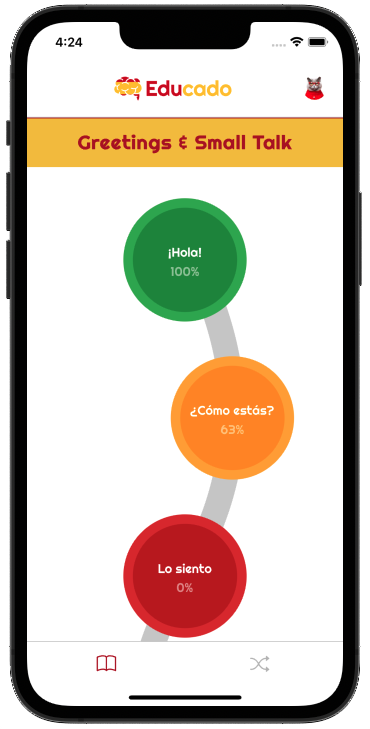Subject pronouns in Spanish
Subject pronouns
Below is an overview of the personal pronouns used as the subject of a sentence.
| Spanish | English |
|---|---|
| yo | I |
| tú | you (informal) |
| él | he |
| ella | she |
| usted | you (formal) |
| nosotros | we (masculine or mixed) |
| vosotros | you all (masculine or mixed, informal) |
| ellos | they (masculine or mixed) |
| ustedes | you all/they (formal) |
It’s good to know that the forms nosotras, vosotras, and ellas also exist! These are feminine forms. You’ll undoubtedly encounter them frequently throughout the rest of the course.
Explanation
-
1st person (I, we):
- yo: "I"
Example: Yo hablo español. (I speak Spanish.) - nosotros/nosotras: "We" (masculine/feminine)
Example: Nosotros estudiamos. (We study.)
- yo: "I"
-
2nd person (you, you all):
- tú: "You" (informal)
Example: Tú trabajas mucho. (You work a lot.) - vosotros/vosotras: "You all" (informal, masculine/feminine)
Example: Vosotros sois amigos. (You all are friends.)
- tú: "You" (informal)
-
3rd person (he, she, you, they):
- él/ella/usted: "He, she, you" (formal)
Example: Ella vive aquí. (She lives here.) - ellos/ellas/ustedes: "They, you (plural)"
Example: Ellos cantan bien. (They sing well.)
- él/ella/usted: "He, she, you" (formal)
Differences in Latin American Spanish
-
Vosotros/vosotras is replaced by ustedes in Latin America for both informal and formal plural.
- Example: Ustedes son amigos. (You all are friends.)
-
In some countries (e.g., Argentina), vos is used instead of tú, with slightly different verb conjugations.
- Example: Vos hablás español. (You speak Spanish.)
Terms of service |
Privacy statement |
E-mail us at: info@educado.app
© Copyright Educado 2024 - All rights reserved
Educado | Opaallaan 1180 | 2132LN | Hoofddorp | Netherlands
© Copyright Educado 2024 - All rights reserved
Educado | Opaallaan 1180 | 2132LN | Hoofddorp | Netherlands


